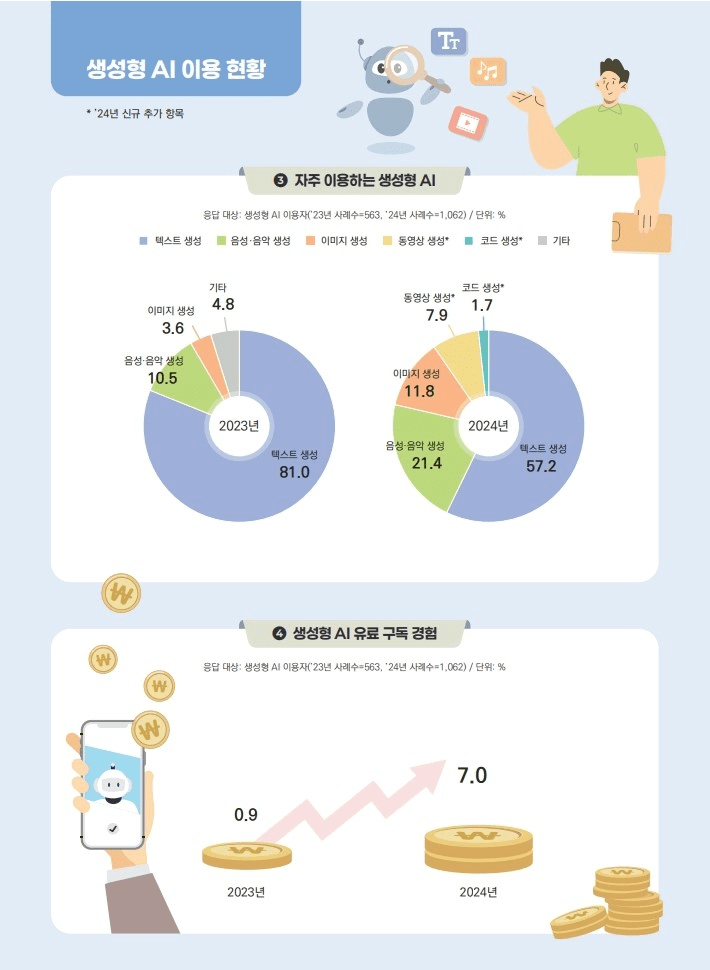The spread of generative artificial intelligence is accelerating. One in four citizens reported having used generative AI, and the experience of creating not only text but also images, music, and voice content has notably increased. Conversely, trust in the objectivity of algorithmic recommendation services has decreased, and concerns about personal data breaches have risen.
The Korea Communications Commission (Chairman: Lee Jin-sook) and the Korea Information and Communication Policy Institute (Director: Lee Sang-kyu) announced the results of the ‘2024 Intelligent Information Society User Panel Survey’ on the 29th, which broadly examined user perceptions, attitudes, and acceptance regarding intelligent information technologies and services, including AI.
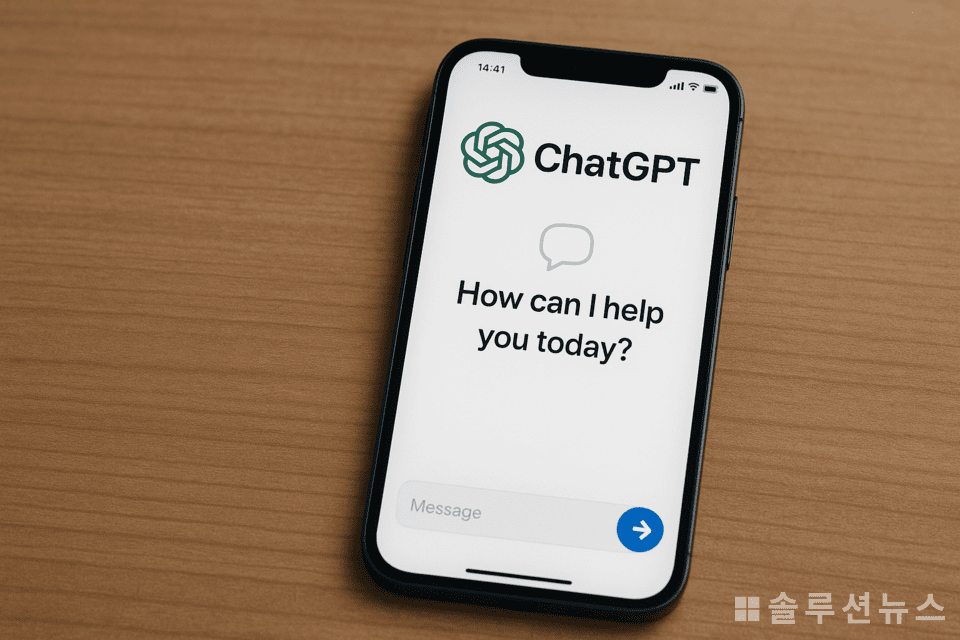
According to the survey, 24.0% of respondents said they had used generative AI, an increase of 11.7 percentage points from the previous year, nearly doubling the usage rate within a year.
The proportion of users with a paid subscription to generative AI services was 7.0%, a sevenfold increase from the previous year’s 0.9%.
The methods of utilization have diversified. Text generation was the most common at 57.2%, but voice/music generation was at 21.4%, and image generation was at 11.8%. Last year, text generation accounted for 81.0% of all uses, but other content areas have noticeably increased this year.
The motivation for using generative AI was primarily ‘efficiency in information retrieval’ at 87.9%, followed by ‘helpfulness in daily tasks’ at 70.0%, and ‘the need for conversation partners’ at 69.5%. These figures have generally risen compared to the previous year.
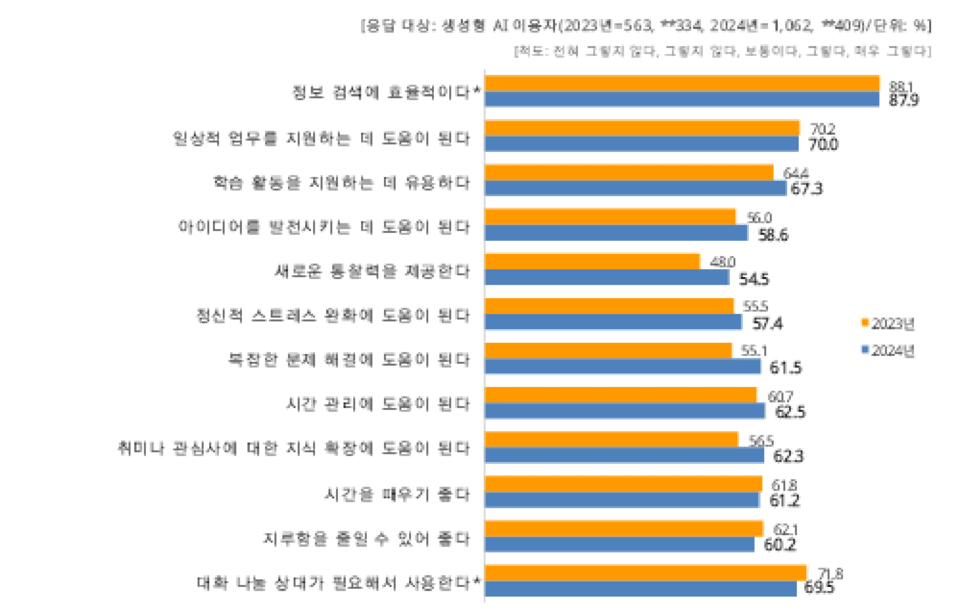
On the other hand, the main reason for not using generative AI was ‘perceived need for a high level of knowledge’ at 65.2%, followed by concerns about ‘potential personal data leakage’ at 58.9%, and ‘complexity in usage’ at 57.3%. These rankings were consistent with the previous year.
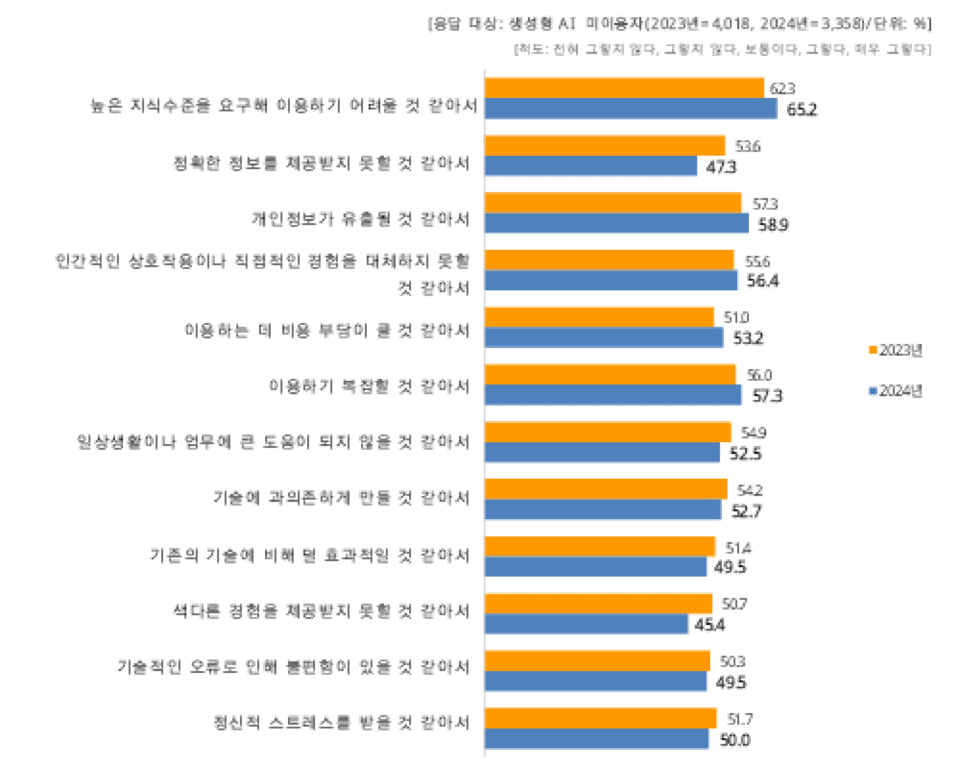
Concerns about the potential negative effects of technological proliferation were also raised. The most significant concern was the possibility of job replacement at 60.9%, followed by reduced creativity (60.4%), copyright infringement (58.8%), and potential misuse in crime (58.7%).
Feedback on the algorithmic recommendation services of portals and YouTube was mixed. The response that ‘it is well tailored to my preferences’ was 72.1% for portals and 71.3% for YouTube. However, the response that ‘I will continue to use it in the future’ decreased to 64.6% for portals and 63.1% for YouTube, dropping by 3.7 percentage points and 5.4 percentage points respectively from the previous year. Overall satisfaction and trust were lower than the previous year.
Particularly concerning was the high proportion of users worried about ‘exposure to illegal information’ on portals (47.4%) and ‘personal data breaches’ on YouTube (48.2%). Last year’s top concern, ‘value bias’, moved to second place this year.
Users are demanding transparency in the operation of algorithms. ‘Disclosure of content selection criteria for algorithms’ was the highest choice at 69.8%, and ‘institutional measures are needed if it infringes on public interest’ was also high at 63.7%. Both figures have increased compared to last year.
The field with the highest experience in using intelligent information services was consumption (53.9%), followed by finance (51.7%) and media (37.8%). The largest increase in usage compared to last year was in the health (37.4%) and medical (19.7%) sectors, along with finance (51.7%).
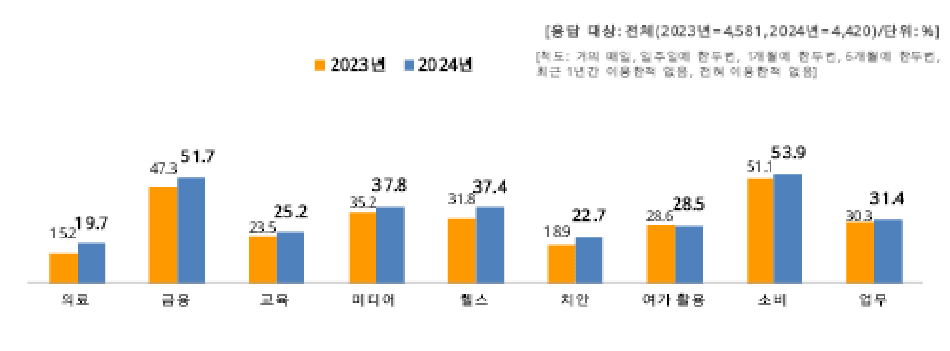
In terms of future expectations for intelligent information services to improve lives, the top three sectors were healthcare (92.4%), finance (88.9%), and consumption (84.6%).
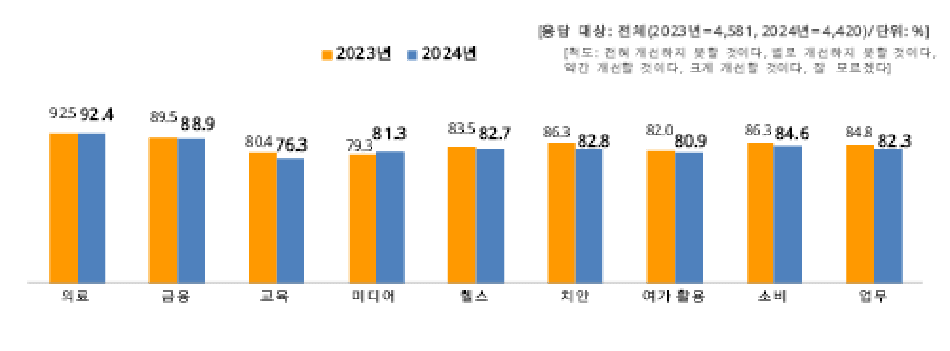
This survey was conducted as a national survey under the “Basic Act on Intelligent Informatization” and targeted 4,420 internet users aged 15 to 69 across 17 cities and provinces nationwide.
The Korea Communications Commission stated, “We plan to closely review the survey results and use them to develop future user protection policies.”
